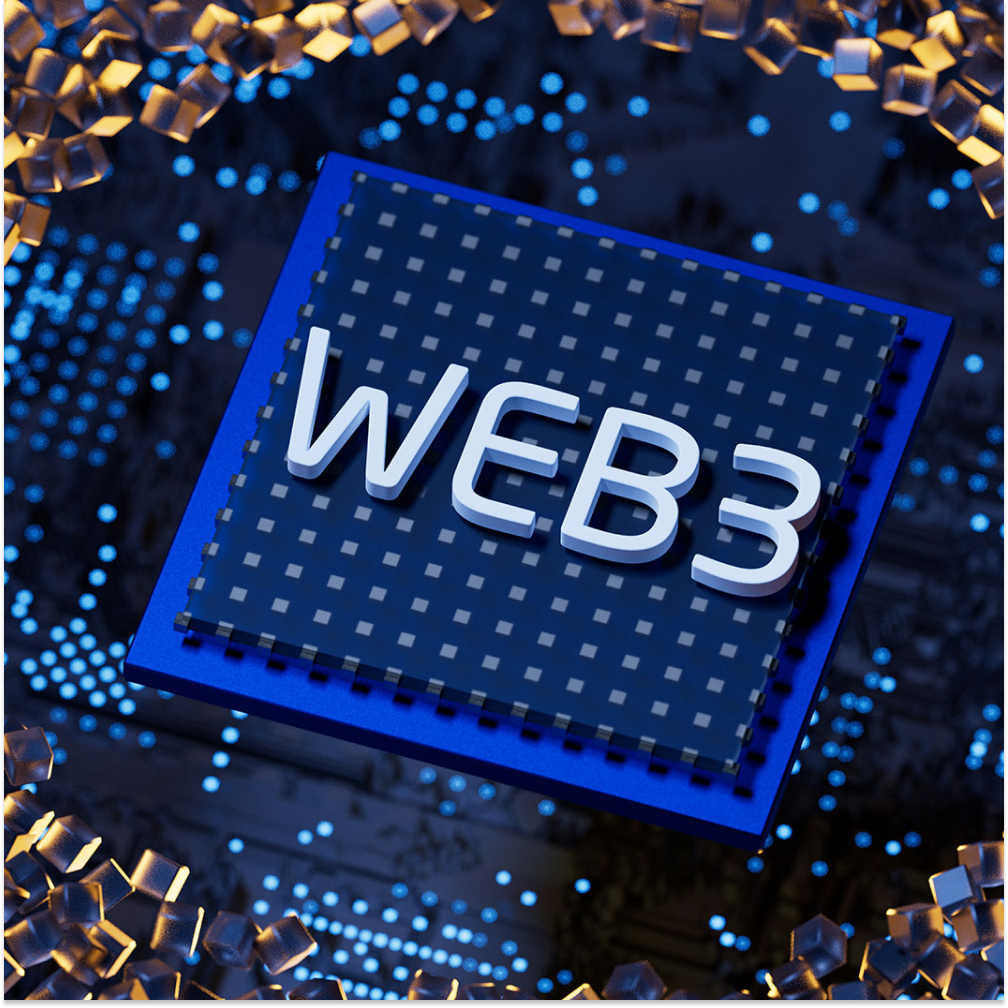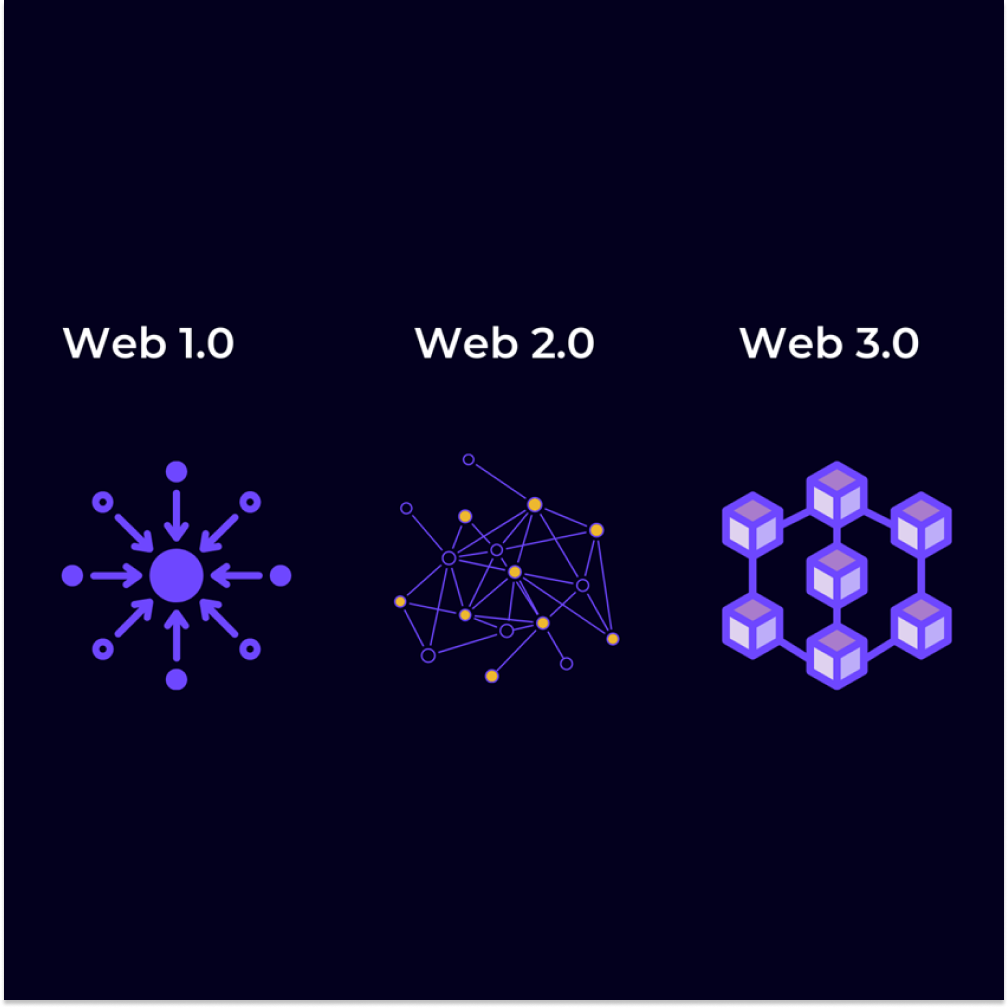
Estimated reading time: 7 minutes
Web3 domains are the latest trend in the world of decentralized technology. They promise a more secure and censorship-resistant internet.
Unlike traditional domain names, which are controlled by centralized authorities, Web3 domains use blockchain technology to provide users with full ownership and control over their web addresses.
As blockchain technology continues to evolve and mature, the future of Web3 domains looks bright. They have the potential to revolutionize the way we think about online identity and ownership.
In this article, we will explore the emerging trends and potential applications of Web3 domains, as well as the future of Web3 domains and how they could transform the way we interact with the Internet.
What are Web3 Domains?
Web3 represents the next era of the internet’s legal, technical, and financial structure by integrating technologies such as smart contracts, blockchain, and cryptocurrencies. Web3 projects are grouped into categories such as decentralized finance (DeFi), digital services, and collectibles.
Web3 domains are an innovative solution for managing websites, cryptocurrency addresses, and other web applications.

This decentralized platform enables individuals to easily create and oversee their web domain without the need for a central authority. The domains are established on various blockchain networks such as Ethereum and Polygon, and provide a user-friendly and secure approach to establishing a Web3 digital identity and managing web apps.
Through Web3 Domains, a smart contract on the underlying blockchain network governs your domain, creating a more secure and decentralized means of accessing it.
These great features are the reason why the future of Web3 domains looks bright.
Web3 Domains vs. Traditional Domains
Traditional domains, also known as web2 domains, have been the backbone of the Internet for decades. These domains use a centralized system that relies on a hierarchical naming structure administered by organizations such as ICANN (the Internet Corporation for Assigned Names and Numbers).
While they have served their purpose well, traditional domains are limited in several ways.
Firstly, Web2 domains are controlled by centralized entities, which makes them vulnerable to censorship and data breaches.
Secondly, they lack transparency, which can lead to issues with trust and accountability.
Finally, Web3 domains are difficult to transfer ownership of and can be subject to high fees and restrictions.

Web3 domains, on the other hand, leverage blockchain technology to create decentralized systems that provide users with more control over their online identities and assets. They allow for peer-to-peer transactions, eliminating the need for third-party intermediaries and reducing associated fees.
Web3 domains also enable greater privacy, security, and transparency. Because they are stored on a distributed ledger, they cannot be easily altered or censored.
Additionally, standards such as the Ethereum Naming Service (ENS) ensure that users can easily transfer ownership of their domain and control their online identity across multiple platforms.
So, while traditional domains have served the internet well, Web3 domains offer numerous advantages in terms of decentralization, security, privacy, and transparency.
As the internet continues to evolve, it is likely that the future of Web3 domains will play an increasingly important role in shaping the future of online communication and commerce.
Reasons Why you Need a Web3 Domain
A Web3 domain can offer substantial returns on investment for those involved in the Web3 community, including Web3 founders and brands, DAOs, token projects, DeFi projects, and web3 influencers. Some of the potential applications of a Web3 domain are listed below:
Decentralized Ownership
Web3 domains are different from Web2 domains which are usually kept with the domain hosting provider, as they allow for decentralized ownership. The ownership information is stored on the blockchain, ensuring that the record is both transparent and immutable.
In addition, users can create their Web3 domain as a non-fungible token and own it completely, as it is saved in their Web3 wallet. They can transfer the domain’s ownership without relying on a third-party domain company’s approval, giving them greater freedom. These advantages make Web3 domains an appealing option for website owners.
Web3’s Enhanced Security and Privacy
Web3 domains offer enhanced security features compared to traditional domains. One of the main reasons for this is the use of blockchain technology, which makes it virtually impossible for anyone to tamper with the data stored on the network.
Blockchain-based DNSs offer improved security and privacy measures through the use of cryptographic methods that maintain data integrity and prevent unauthorized access.
As all transactions are recorded on a decentralized ledger, user data is kept confidential and secure. Additionally, Web3 domains utilize cryptographic processes, such as public and private key encryption, to prevent unauthorized access and maintain data integrity.
The future of Web3 domains offers even more security and privacy for users.
Affordability in the Future of Web3 Domains
Web3 domains offer a significant advantage in terms of hosting costs when compared to conventional web hosting alternatives. Instead of paying recurring hosting fees, users need only pay a one-time fee to mint or create their domain name.
This is because the underlying blockchain network powering Web3 domains is significantly more cost effective than traditional web hosting infrastructure. Once a Web3 domain is established, users can promptly set up a website without incurring any additional hosting expenses.
Building Web3 Businesses
Just like Web2 domains, it is possible to establish your next online enterprise using a website operated by a Web3 domain. This can include developing various types of websites, such as dynamic, static, or video-based. Major web browsers like Opera and Brave currently offer direct access to Web3 domains.
In addition, securing a Web3 domain could be a valuable component of your company’s digital strategy. Owning a Web3 domain may result in similar benefits for your business and even inspire novel business concepts.
Secure your Web3 Domain with a Teleport Plaque Address

The Teleport Plaque Address (TPA) offers a groundbreaking approach to domain ownership in the Web3 world. With TPA, users can securely manage and use their domain without relying on centralized intermediaries.
TPA ensures that users can access websites without being subject to manipulation or censorship by central authorities. It consists of a six-character code made up of three letters and three numbers, which are assigned to Web3 sites.
Web3 technologies are driving a new era in domain ownership, giving users greater control over their domains and creating a more secure and censorship-resistant internet. TPA is just one example of how Web3 is leading this revolution, providing trustless resolution and improving security, privacy, and user experience.
As decentralized domain ownership becomes more widespread, we can expect further enhancements in the future of Web3 domains. Utilizing protocols like TPA, users can take back control of their domains and enjoy a better online experience while paving the way for a more secure, private, and censorship-resistant internet.
The Future of Web3 Domains
After discovering the definition of Web3 domains and their applications, you may be interested in the direction that the future of Web3 is heading. The Ethereum Name Service aims to simplify cryptocurrency transactions, making them as effortless as sending payment via PayPal to a friend for a crypto item.
The ENS is a crucial step toward enhancing accessibility to blockchain technology. With its purpose and popularity, we can expect a rise in ENS names, similar to how we no longer use IP addresses to access the internet.
Furthermore, Web3 hosting will lead to businesses becoming more transparent and user-friendly. This will pave the way for the use of blockchain-based domains by individuals, applications, and websites, providing access to the decentralized web.








